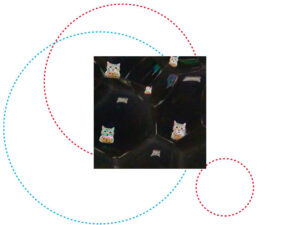Aurélia Chenu, who joined the University of Luxembourg in January 2021, recently won the prestigious ATTRACT funding from the Luxembourg National Research Fund (FNR) to create her own group in quantum physics. She is now Associate Professor within the Department of Physics and Materials Science, leading the group on Quantum dynamics and control.
Reign of quantum systems
Any realistic quantum system, because of its small size, inevitably interacts with the surrounding environment, which makes it ‘open’. Open quantum systems represent a vast diversity of systems, ranging from simple building blocks (atoms, molecules) to complex mesoscopic systems (spin chains, molecular networks). Their study has led to advances in fields including quantum optics, quantum control, and physical chemistry. Today’s conventional concepts and material performance are governed by quantum properties and the associated dynamical processes. So understanding the underlying dynamical properties is key to identify system layouts with optimised functions.
In parallel, the control of dynamical processes is necessary to advance quantum technologies; namely to protect quantum coherence and to reduce dissipation, making processes faster and energy efficient. Advances in fast quantum control have mainly been restricted to closed systems, limiting the scope of applications. Despite considerable progress, a general framework is currently lacking to understand how dissipation and decoherence can be harnessed and optimised to protect useful quantum features and control quantum systems.
Solutions for sustainable energy
Aurélia Chenu has been working for more than nine years in the broad field of quantum science and technologies. She will now create a group that brings unique analytical and numerical expertise in the dynamics of open quantum systems. While her research is mostly fundamental in nature and driven by her motivation to understand, she also wants to contribute to the society by providing solutions for sustainable energy production.
“We aim at generating control protocols that engineer dissipation and decoherence to reach a target quantum state or quantum dynamics, combining analytical and numerical tools. By protecting the fragile quantum properties of nature, we can find new ways to optimize quantum transport in dissipative networks for efficient energy-harvesting systems. Instead of trying to suppress the effect of the environment, we aim at exploiting and optimising it to protect useful quantum features in the system”, explains Aurélia.
Interdisciplinary research
The project’s broad scope bridging analytical models, computer science, technology and materials will foster interaction within the University of Luxembourg and beyond. “My hope is that we can help orient the search of new materials for artificial photovoltaics toward a systematic and quantitative approach, develop new ideas for quantum computing, or stimulate projects merging physics and biology. The potential is huge and we need to develop quantum science and technologies in Luxembourg, helping to build international leadership in these emerging future technologies”, comments Prof. Chenu.
Boost career paths
“This ATTRACT represents an excellent opportunity to advance an innovative project and establish my own research group at the University. It will strengthen my establishment as an internationally recognised expert in quantum science and technologies. This is a core research area, with emerging applications targeted at the development of quantum computers and efficient, solar-powered energy conversion systems. As such it offers significant potential to deliver novel and timely solutions for emergent technologies. Being at the interface of physics, biology, materials science, and technology, the proposed project offers an ideal training platform, attractive to young researchers. I am looking forward to contribution to the training of competent researchers and to scientific excellence here in Luxembourg.”
Picture ©Guy Chenu
